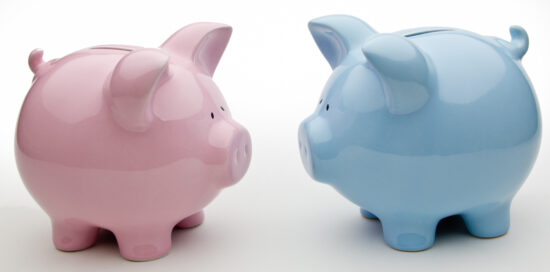
The first step to changing your ways is to acknowledge that there is a problem. If you are blind to the issues your money habits are causing you, it will take you much longer to get out of your situation. By facing them head on, you will be able to turn your bank account around.
Here are some common bad money habits and ways to fix them:
- Eating out multiple times a week. By making simple homemade foods at home, you can save quite a few dollars each month. If you figure that the average meal when dining out is roughly $12 compared to about $4 to $6 when cooking at home, you’ll save roughly $6 per person per meal each month. Even by reducing the amount of times you go out for coffee every month, and making it more at home, you will be able to cut back on frivolous spending. For example, going out for a $2 coffee five times in one month is more than what you could pay for one bag of coffee. Two dollars may not seem like a lot, but it certainly adds up quickly. Have a hard time giving up your favorite cafe’s cup of Joe? See if you can purchase your own bag of their ground coffee beans to make at home.
- Having no financial plans. Not having a plan to save any money is a terrible habit you should break away from immediately. Making changes like paying yourself first, creating an emergency fund, lacking a budget and opening a retirement account are all actions to consider implementing as soon as possible. Life throws us many punches, and we need to be as prepared as possible.
- Not talking to your significant other. Not discussing the topic of finances with your significant other is a bad idea. Even if you are not married yet, you and your partner should have a general idea of what is going on in your bank accounts, especially if you have plans to move in together. Create a plan and financial goals together and work on being as transparent as possible with one another.
- Impulsive buying. It’s hard to not want to dish out money on an item we see and fee we must have right away. But, this kind of impulsive spending on a regular basis is not only harmful to your bank account, but it tends to create negative habits that become harder to avoid even in times of financial struggle. One way to short circuit this process is to only carry cash. People tend be more miserly when paying with cash, so you can help yourself by paying in cash only.
- Carrying a credit card balance. People use credit cards to create an tremendous amount of debt each year. If you have a balance pay it down to get rid of any looming interest. Train yourself to skip using a credit card for unnecessary purchases or any items you haven’t budgeted for. If you do use your card, make sure to pay off the balance each month.
- Ignoring your savings. Some studies suggest that roughly a third of Americans don’t have any money saved for emergencies. Consider cutting the fat out of your budget and automating contributions to your savings and 401k accounts. Contributing to your 401k will improve your tax situation and building your savings will reduce any financial stress you might be having.
- Bad bank behavior. Banks are consistently trying to find ways to charge their customers new fees – ATM fees are no exception. On average ATM fees cost $2.50. Avoiding this fee once a day for 40 days can save you almost $100.00. Consider avoiding fees by getting an ATM in your bank’s network or withdrawing money with your debit card at a grocery store or drugstore as a cash back option.
- Neglecting to get the best rate. People often overpay for services they don’t use. A great example of this is huge cable bills for hundreds of channels that never get watched. The average monthly American cable bill was about $128 in 2001. Consider using a comparison website like lowermybills.com to get a sense of how much you should be paying. Once you have this information you can call your provider to see if they can lower your rate. Or better yet, cancel your cable all together.
The above are just a few common bad money spending habits, but we know there are more to avoid. How do you feel about your own spending habits? Do you think they are good or bad? To get an idea, take this quiz and find out.
What were your results?
Photo: Flickr: Ken Teegardin
Comments